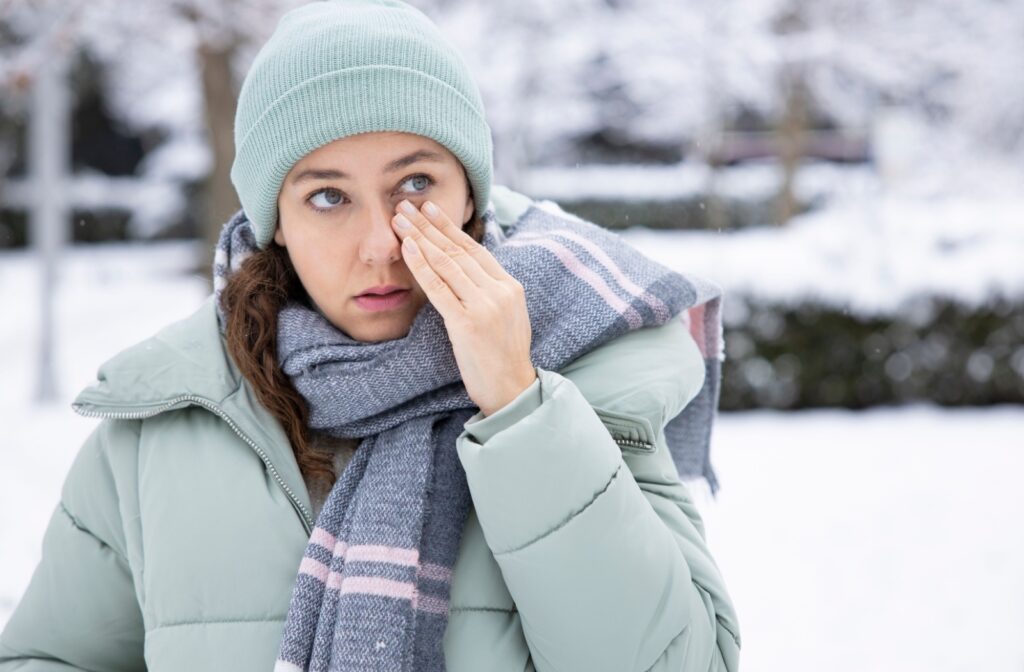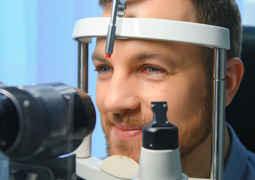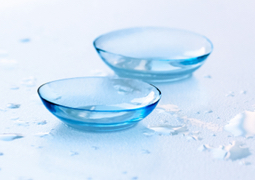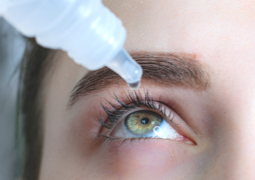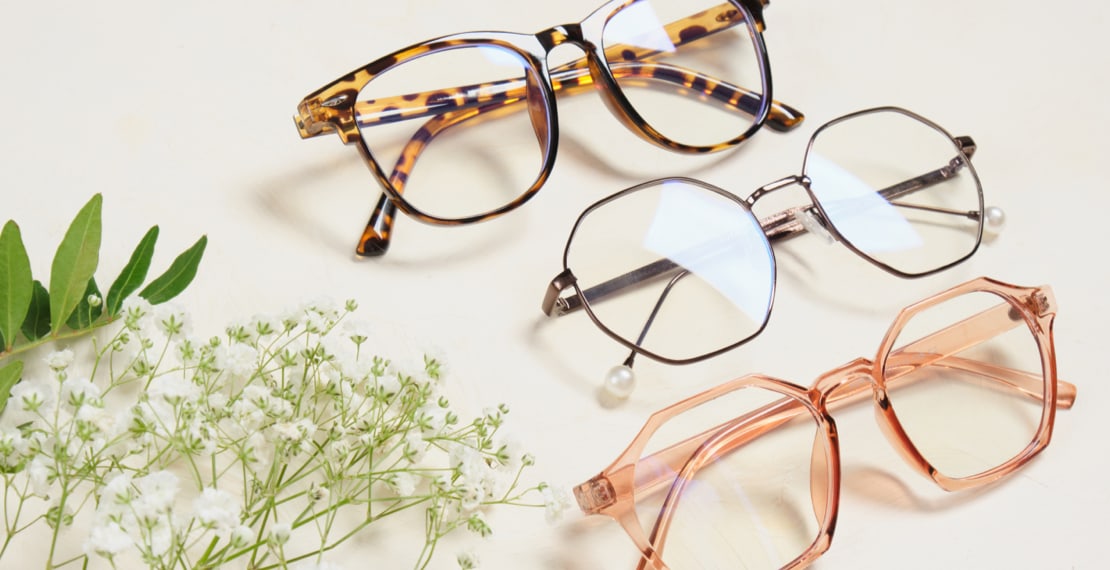Winter can be challenging for your eyes, especially when the air outside is cold and dry, and indoor heating can further reduce moisture. Many people experience increased dryness and irritation during the colder months, which can result in discomfort. One simple tip to alleviate dry eyes in winter is to use a humidifier to help restore moisture to the air in your home.
If you or a loved one has been experiencing dry eyes, consider booking an appointment with your eye doctor to discuss your symptoms and come up with a treatment plan that works for you.
What Are Dry Eyes?
Dry eyes are a common condition that occurs when the eyes do not produce enough tears or when the tears evaporate too quickly. When tears are inadequate or poor in quality, it can lead to dryness and discomfort in the eyes.
Dry Eye Symptoms:
- Gritty or sandy feeling
- Redness or Itchiness
- Eye fatigue
- Sensitivity to light
- Blurred vision
- Watery eyes
- A feelings of something in the eye
Managing dry eyes typically involves addressing underlying environmental, lifestyle, or medical conditions, such as increasing humidity, taking screen breaks, or using artificial tears to restore moisture.
What Causes Dry Eyes in the Winter?
You might be curious about what causes dry eye symptoms during winter. The cold Canadian winters bring along some common culprits:
- Low humidity: Outdoor air holds less moisture when it’s cold, and indoor heating systems further reduce humidity, making your eyes dry out faster.
- Harsh winds: Brisk winds can strip the moisture from your eyes, leading to dryness and irritation.
- Dehydration: Many people drink less water in winter, which can lead to overall dehydration, including dry eyes.
- Screen usage: Cold days often mean more time indoors, leading to increased screen time. Staring at screens reduces your blink rate, which can trigger or worsen dry eyes.
Understanding the causes of dry eye symptoms during winter can help you to take steps to protect your eyes. Simple habits like staying hydrated, using a humidifier, wearing protective eyewear, and taking regular breaks from screens can make a difference in maintaining eye comfort throughout the colder months.

Ways to Manage Eyes in the Winter
Winter can be challenging in your eyes, with potential cold air, harsh winds, and dry indoor environments. Fortunately, there are some practical steps you can take to help protect and care for your eyes during the colder months.
- Invest in a Humidifier
One potentially effective way of combating dry indoor air is to use a humidifier. Indoor heating systems can make your living or working space very dry, irritating your eyes. A humidifier can help maintain moisture in the air, reducing eye dryness and irritation. A pro tip is to place the humidifier in the room where you spend the most time!
- Stay Hydrated
Drinking enough fluids can make a difference in your overall hydration, including your eyes. When you’re dehydrated, your body might produce fewer tears, which are important for keeping your eyes lubricated.
- Wear Protective Eyewear When Needed
During winter, icy winds and cold air can strip away the natural moisture on your eye’s surface. To prevent this, wear protective eyewear such as sunglasses or ski goggles when you’re going outside. Wearing them can help shield your eye from the wind and UV rays, often reflecting off the snow.
- Follow the 20-20-20 Rule
Long indoor days can sometimes mean more time spent in front of screens, which can reduce the rate at which you blink, leading to dry eye symptoms. The 20-20-20 rule says to look at something 20 feet away for at least 20 seconds every 20 minutes. This can help to relax your eyes and promote natural blinking.
- Use Artificial Tears
Over-the-counter eye drops can help to provide immediate relief and lubrication for dry eyes. Choose preservative-free options to avoid irritation, and use them throughout the day as instructed. It’s recommended to consult with your eye doctor on which brand or type of eye drops is best for you.
- Maintain a Healthy Diet
Omega-3 fatty acids, found in fish like salmon or plant-based sources like chia seeds and flax seeds, are known to help improve eye health. By incorporating these foods into your diet, you can help keep your eyes and body nourished.
- Schedule Regular Eye Exams
If you or your loved ones’ dry eye symptoms persist, it is important to consult an eye care professional. A comprehensive eye exam can help to identify any underlying issues and guide you toward an effective treatment plan.
Get Your Eyes Checked Today
Winter doesn’t have to mean discomfort for your eyes. By incorporating simple measures like using a humidifier, staying hydrated, and wearing protective glasses, you can help manage potential symptoms. If you’re unsure about how best to protect your eyes this winter or want more personalized guidance, contact Calgary Family Eye Doctors and schedule an appointment with one of our experienced eye doctors today.


